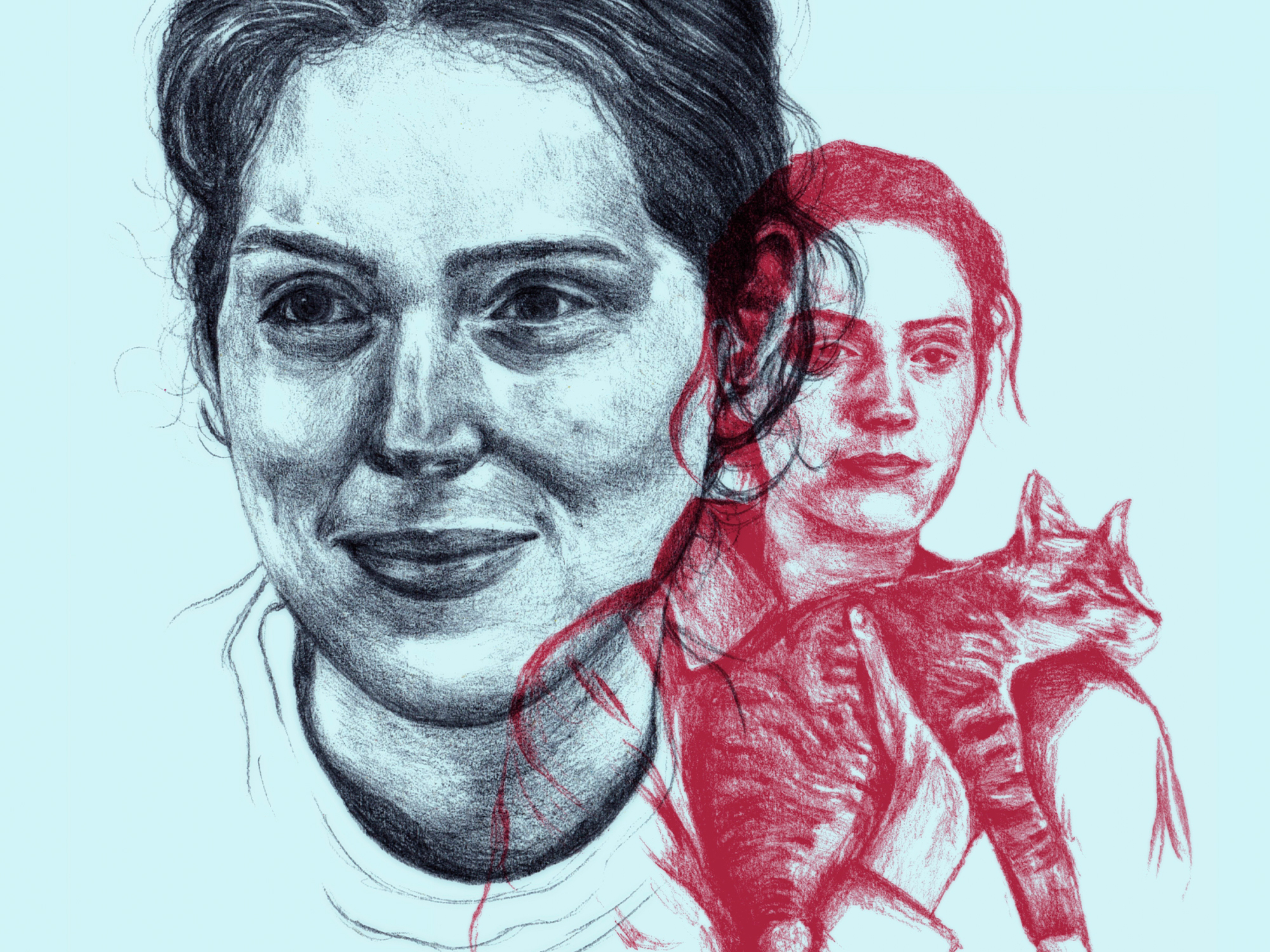
Eva Victor’s first brush with celebrity came through viral comedy videos, most famously one on Straight Pride, which earned them a writing gig for the satirical website Reductress. Taking the road less travelled, their next step was to write, direct and star in Sorry, Baby a rare work of traumedy (trauma + comedy) that stands as an antidote to cinema’s glib and exploitative history of sensationalising sexual abuse and simplifying its impact. There is no lurid depiction of a violation by a college lecturer, instead the film shows how it seeps into every part of grad student Agnes’s life, affecting her in ways that go largely unseen by others. The tone is alternately very funny and very sad, as the film depicts horizons beyond her trauma, while showing that years later, she is still wrestling with “the bad thing”. Following a Sundance première and Directors’ Fortnight slot in Cannes, the film finally arrives on these shores and we had the pleasure of speaking to Eva over Zoom.
LWLies: Do you happen to be a fan of the French filmmaker Mia Hansen-Løve?
Victor: Things to Come is one of my favourite movies, I love that film.
Perfect, I wanted to present you with a quote as, like you, she works in the domain of autofiction. She said: ‘I felt it wasn’t totally over until I had told the story. There’s something cruel about fiction or making films. It’s a way to turn present into past. You put something that you still have within and that occasionally makes you suffer into fiction, and it becomes memory. If it’s too early then I can’t tell the story. There has to be some distance. But then there comes this perfect moment where it’s far away enough, but not too far, so that it can still touch the emotions.’
Wow. That’s so beautiful and so true. I don’t know if you can identify the exact sweet spot until it’s over. And there was a time I tried to write it a little bit earlier and it was just too soon. So it tracks exactly with my experience. I think the beautiful thing about being able to fictionalise an emotional truth is getting to tell the story. Like, things in life happen randomly, but in a story you plant a seed at the beginning that then turns into a tree by the end and you create all of these things that support this person. Everything is purposeful in a story that in life, it doesn’t feel like there’s always threads of meaning. So I love that quote, it’s so beautiful. It’s so true. Wow.
I’m really glad that it resonated.
I’m new to this feeling of releasing a film into the world. The making of it feels so important and essential and euphoric and difficult in a lot of ways. But the release is this other emotional thing that I didn’t expect was going to hit me as hard – having to really release the film that was in my body for so long and now exists outside of me. I keep looking up symptoms of postpartum depression. I know I’m not going through that because you have to have a baby and that’s a really different thing and this is not as crazy as that. But I am experiencing the baby blues. So it’s been a whirlwind. But it’s also a dream come true that the movie gets to have a life outside of me.
If you’re in postpartum now, what was the peak of creative excitement in this process?
I think there were a few moments in the edit… There was a lot of catharsis for me on a personal level getting to perform the part, because the words had lived inside me for so long. Training as an actor, and then getting to actually say the words for the real run of it – these are actually her words that she’s getting to say finally – that felt so good. Then the edit was so mind-bendingly difficult, just on a spiritual level, having to watch this and having it all strung together was so weird, but in looking back on it I have only good memories. I feel like I look back on it already with nostalgia, like, ‘Ah, the edit.’ When, really, I got my bellybutton pierced, I dyed my eyebrows and my hair. I was not well, but I liked the private creativity of it a lot.
So, you got your bellybutton pierced as a direct response to a hurdle in the edit?
I was watching the film and I was like, ‘That is not me. I’ve decided that’s not me,’ so I bleached my eyebrows blonde and then I pierced my bellybutton and it got infected immediately. Six months later someone was like, ‘If you don’t take that out, you are seriously gonna have an issue forever.’ And so I took it out. It’s still infected. But, you know what, it’s a good memory. It’s not the most destructive thing that could happen.
Was Sorry, Baby always the title? Or were there other working titles en route? At what point did you settle on it?
I used the title as a way to reward myself once I wrote it. So I finished it and I remember making a little list and it was the one that stuck. I remember looking at it and thinking: I like how these words look and how it sounds, and the comma feels literary. It feels like within it exists these two tones – one that’s earnest, like, ‘I’m sorry,’ and the other one sort of like, ‘Life is crazy.’ I liked that the title doesn’t make sense until the end of the film. No one ever challenged me on it. So, it stuck.


